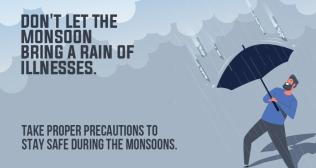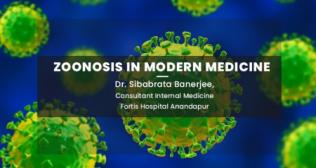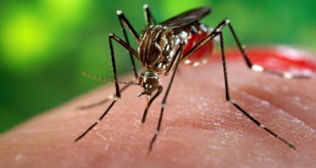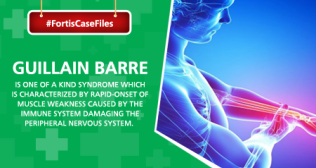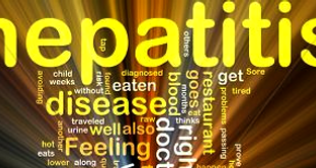
What is the role of emergency medicine in the hospital
Emergency medicine is a field where treatment isn’t just a skill, it’s a lifeline. Emergency doctors and nurses play an essential role in facilitating timely treatment for emergency conditions such as acute myocardial infarction, trauma and accidents. This changing landscape of healthcare has resulted in enhanced and increased delivery of critical care in the emergency department, as physiologic determinants of outcome may be established before ICU admission.
Emergency medicine consists of the clinical, educational, research, and operational aspects of the practice of emergency care, which encompasses a network of organizations, personnel, facilities, and processes designed to support the sudden needs for healthcare setting. It fulfils an unexpected demand for care that is difficult to predict or plan for yet is necessary and important at the time of need. It provides its service despite weather conditions such as rains, floods, blizzards, hurricanes, tornadoes, droughts, earthquakes war, acts of violence, or acts of terrorism or other challenges to normal operation. The term emergency medicine includes both the specialty and subspecialty of emergency medicine.
Role and Scope of Emergency medicine
"Hospital Medicine" is a growing interest in the developed world, focusing on improving the outcomes for general patients admitted to the hospital. The Department of Emergency Medicine is the beginning of critical care before subjecting for any treatment. It is where the initial screening of fragile individuals for diminished reserves is often carried out, diagnosing and initiating critical care. The emergency department is a whirlwind of uncertainty. Emergency physicians make split-second decisions. Some of them include: Should this patient be admitted? Is surgery necessary? Can we manage this condition here or do we need to transfer them to a specialized centre.
The important aspect of emergency medicine is handling the unexpected. When such a situation commences, emergencies don’t follow scripts or come with a plan. Sometimes it’s a rare tropical disease, a snakebite, or a patient who speaks a language the staff hasn't encountered before. Hence, the department is always adaptive to any situation.
Key Components of Emergency Medicine
Triage
Triage is the initial sorting process in emergency medicine. It involves assessing patients to determine the order of care based on the severity of their condition. Here are some essential aspects of triage:
- Urgency Assessment: Triage assigns patients to different categories (e.g., immediate, urgent, non-urgent) based on their clinical needs. They quickly assess the situation, gather information and perform physical examinations.
- Resource Allocation: Triage ensures that limited resources (such as staff, equipment, and treatment rooms) are used effectively.
- Dynamic Decision-Making: Triage decisions adapt as new information becomes available during the patient’s evaluation.
Resuscitation
Resuscitation is the rapid intervention to stabilize critically ill or injured patients. Key elements include:
- Cardiopulmonary Resuscitation (CPR): Chest compressions, airway management, and rescue breaths are crucial for patients in cardiac arrest.
- Advanced Life Support (ALS): Advanced airway management, defibrillation, and drug administration.
- Intraosseous Line Placement: When intravenous access is challenging, intraosseous lines allow rapid drug delivery.
- ED Thoracotomy: In extreme cases (e.g., trauma), emergency department thoracotomy may be necessary.
Challenges and Opportunities in Emergency Medicine
There are many challenges encountered by emergency department some of them include:
- Capacity and Crowding: Overcrowded emergency departments face resource constraints and increased patient volumes.
- Staffing: Ensuring adequate staffing levels, especially during peak hours.
- Technology Integration: Balancing the benefits of technology (e.g., telemedicine, data management) with training needs and costs.
- High-Stakes Environment: Emergency care involves life-threatening situations, medico-legal implications, and incomplete information.
Opportunities:
- Telemedicine: Bridging gaps in underserved areas by allowing remote consultation with specialists.
- Data Management: Efficiently collecting, analysing, and sharing patient information.
- Crisis Resource Management: Enhancing teamwork, communication, and coordination during emergencies.
- Advancements in Remote Diagnostics: Real-time transmission of patient data to hospitals for early diagnosis and treatment.
Collaboration with Other Hospital Departments
Emergency medicine doesn’t work in isolation. Collaboration with other departments is vital:
- Critical Care: Seamless transitions from the emergency department t to intensive care units.
- Surgery: Coordinating trauma care and surgical interventions.
- Radiology: Timely imaging for diagnosis and treatment planning.
When it comes to emergency care, every second of life counts. The dedicated heroes ready to handle any emergency are the emergency physicians and nurses. When a patient arrives at the hospital needing urgent care, the emergency department serves as the gateway. Beyond treating individual patients, emergency medicine plays a crucial role in public health by detecting epidemics, managing crises, and educating communities on injury prevention.
Popular Searches :
Hospitals: Cancer Hospital in Delhi | Best Heart Hospital in Delhi | Hospital in Amritsar | Hospital in Ludhiana | Hospitals in Mohali | Hospital in Faridabad | Hospitals in Gurgaon | Best Hospital in Jaipur | Hospitals in Greater Noida | Hospitals in Noida | Best Kidney Hospital in Kolkata | Best Hospital in Kolkata | Hospitals in Rajajinagar Bangalore | Hospitals in Richmond Road Bangalore | Hospitals in Nagarbhavi Bangalore | Hospital in Kalyan West | Hospitals in Mulund | Best Hospital in India | | Cardiology Hospital in India | Best Cancer Hospital in India | Best Cardiology Hospital in India | Best Oncology Hospital In India | Best Cancer Hospital in Delhi | Best Liver Transplant Hospital in India
Doctors: Dr. Rana Patir | Dr. Rajesh Benny | Dr. Rahul Bhargava | Dr. Jayant Arora | Dr. Anoop Misra | Dr. Manu Tiwari | Dr. Praveer Agarwal | Dr. Arup Ratan Dutta | Dr. Meenakshi Ahuja | Dr. Anoop Jhurani | Dr. Shivaji Basu | Dr. Subhash Jangid | Dr. Atul Mathur | Dr. Gurinder Bedi | Dr. Monika Wadhawan | Dr. Debasis Datta | Dr. Shrinivas Narayan | Dr. Praveen Gupta | Dr. Nitin Jha | Dr. Raghu Nagaraj | Dr. Ashok Seth | Dr. Sandeep Vaishya | Dr. Atul Mishra | Dr. Z S Meharwal | Dr. Ajay Bhalla | Dr. Atul Kumar Mittal | Dr. Arvind Kumar Khurana | Dr. Narayan Hulse | Dr. Samir Parikh | Dr. Amit Javed | Dr. Narayan Banerjee | Dr. Bimlesh Dhar Pandey | Dr. Arghya Chattopadhyay | Dr. G.R. Vijay Kumar | Dr Ashok Gupta | Dr. Gourdas Choudhuri | Dr. Sushrut Singh | Dr. N.C. Krishnamani | Dr. Atampreet Singh | Dr. Vivek Jawali | Dr. Sanjeev Gulati | Dr. Amite Pankaj Aggarwal | Dr. Ajay Kaul | Dr. Sunita Varma | Dr. Manoj Kumar Goel | Dr. R Muralidharan | Dr. Sushmita Roychowdhury | Dr. T.S. MAHANT | Dr. UDIPTA RAY | Dr. Aparna Jaswal | Dr. Ravul Jindal | Dr. Savyasachi Saxena | Dr. Ajay Kumar Kriplani | Dr. Nitesh Rohatgi | Dr. Anupam Jindal |
Specialties: Heart Lung Transplant | Orthopedic | Cardiology Interventional | Obstetrics & Gynaecology | Onco Radiation | Neurosurgery | Interventional Cardiology | Gastroenterologist in Jaipur | Neuro Physician | Gynecologist in Kolkata | Best Neurologist in India | Liver Transfer







